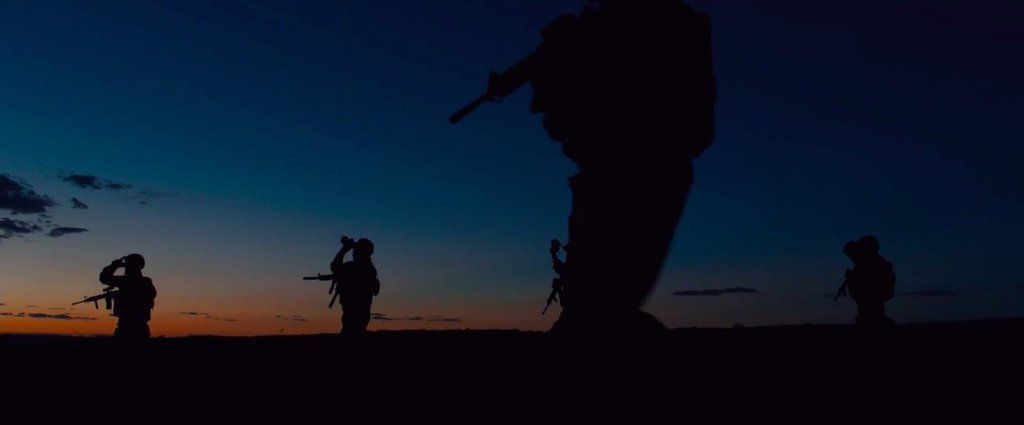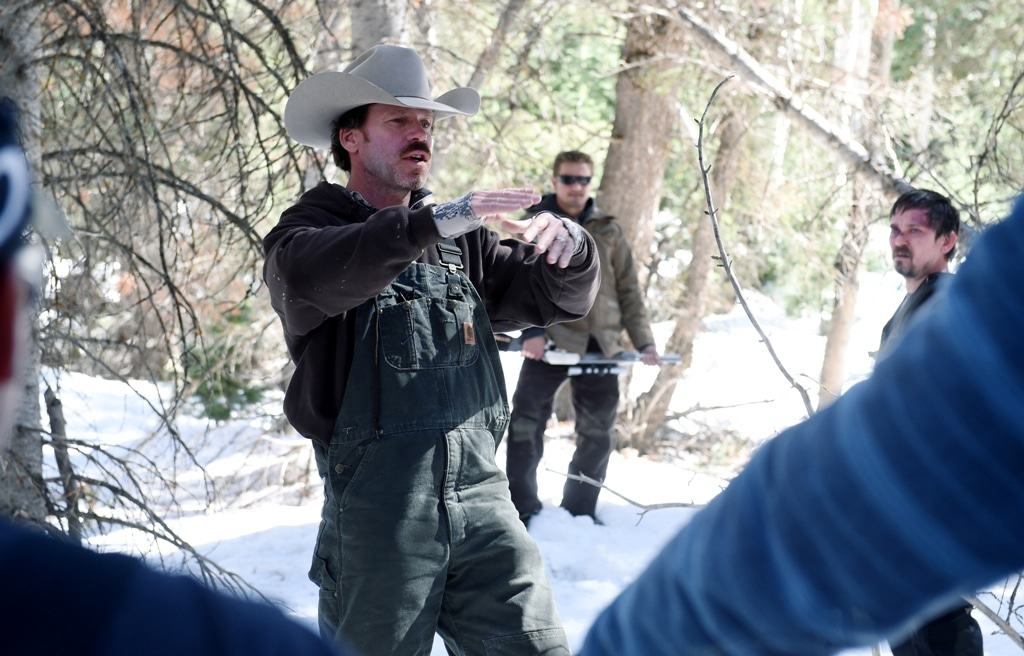The writer of ‘Sicario’ and ‘Hell or High Water’ gives his advice for finding a fulfilling career in the industry.
Taylor Sheridan proves it’s never too late to find your calling as a filmmaker. He started his career as an actor with roles on shows such as Veronica Mars and Sons of Anarchy. Only within the past decade did he make the switch to screenwriting. In just a matter of years, he’s attained the type of success aspiring filmmakers spend a lifetime dreaming about.
His scripts for Sicario and Hell or High Water have garnered him a franchise gig and earned him an Oscar nomination, respectively. Both were turned into complex, character-driven, Western-like dramas, and each of those resulting movies triumphed with critics and at the box office.
More recently, Sheridan made his directorial debut with Wind River, and he’s stepped back into the television sphere with his series Yellowstone, which he also wrote and directed. Now that he’s achieved such success working different jobs in the industry, he has many lessons to impart. We’ve gathered some of his best advice below.
Write for Yourself
Whether you’re a new filmmaker writing your first script or a seasoned professional, you’re typically thinking about your potential audience on some level. At the end of the day, however, Sheridan advises writing something you’d want to watch in order make your film the best it can be, and worry about the rest later. He told Creative Screenwriting in 2016:
“For 20 years I’d spent most of my time reciting lines by people that took shortcuts. Don’t take a shortcut.
“I always write the movie that I want to go see, and just assume someone else will want to go see it, too. It’s got to be saying what you want to say the way you want to say it.
“I think to be a really good screenwriter, you have to be selfish, you have to write just for you. You’ll be your toughest critic, but trying to guess what someone else is going to like or want, that’s such a moving target. You’ll find yourself trying to write something that’s false.
“Constantly remind yourself to write what you’d want to see and that you can’t waste a word.”

Keep Your Audience Thinking Ahead
As a filmmaker, Sheridan goes by a few of his own simple rules that he’s picked up throughout his years in the business. The first was explained in the previous tip, while the rest focus more on his process as a director. He told Vulture in 2017:
“I’ve made up little mantras for myself, catchphrases from a screenwriting book that doesn’t exist. One is ‘Write the movie you’d pay to go see.’ Another is ‘Never let a character tell me something that the camera can show me.’ Then there’s ‘You always want the audience wondering what’s going to happen next, never what’s happening.’ Maybe if I’d graduated college or read a book on screenwriting, I’d do things differently. But this is how I do ’em.”

Know Where You’re Going
Some writers like to spend months outlining and then rewriting to shape their story, Sheridan is not one of them. When he sits down to work on a script, he knows who his characters are and where they’re going, something he advises other writers do as well, as he told Fast Company in 2016:
“You gotta know how it ends. You don’t have to know exactly the mechanics of the journey but you have to understand the journey of the hero –like how is he or she different? What does it cost them, what do they gain? And then what are you trying to say? The movies that move me the most don’t tell me what to think but ask a lot of questions. I’ve sat down a lot of times with a great idea and somewhere around the middle of the second act, the well runs dry and you realize you didn’t know where you were going. And I’ve got 10 of those sitting on my desk. Every now and then you have an idea that answers the whole thing. But yeah, for me, I gotta know where I’m going.”

Listen to Your Story
While it’s important to have an end goal in mind when writing your script, as the previous tip noted, it’s possible that how you get to that point will change as you write. Sheridan suggests remaining flexible when you’re writing and paying close attention to your story so that it can guide you. He told DP/30 in 2016:
“When you start writing a screenplay, you have very general awarenesses and ideas and themes that you want to try and explore. And then I think you have to be pretty malleable because the story is going to start telling itself and telling you that there are other things in there that you should look at. And other arcs and other things. You have to kind of ride with it. For me, if I’m really struggling with a scene and writing three scenes to justify this one thing, I know that I’m not listening to the story. There is a story that wants to be told and if you listen, it tells itself very easily.”
Watch the full interview below.
What We Learned
No amount of screenwriting books or classes can ever really prepare you for the journey you embark on when entering the film industry. In Sheridan’s case, he learned how to write scripts and direct from years of experience trying his hand at a few different jobs and observing others. From that, he was eventually able to find what he’s best suited for as an artist and never had to look back.
A good portion of being a filmmaker requires having that sort of sensitivity to your own abilities as well as the story you want to tell. Being attuned to how you can best contribute to the film you want to make will help to strengthen it as a whole and guide you toward a fulfilling career.
The post 6 Filmmaking Tips From Taylor Sheridan appeared first on Film School Rejects.
No comments:
Post a Comment